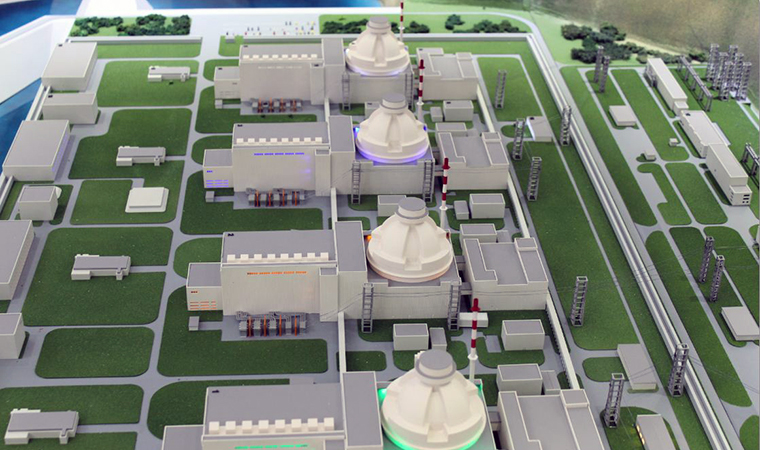
Akkuyu NPP: new milestone
back to contents“Turkey is determined to construct the nuclear power plant (NPP), which is important for the country”, declared Taner Yildiz last week, the Minister of Energy and Natural Resources of the country. The minister noted that all conditions and opportunities for construction of the NPP are now available in Turkey. According to him, construction of the NPP will become the demonstration of economic and political stability in Turkey.
The beginning of port construction in the Akkuyu NPP infrastructure will commence in April, declared in Ankara Fuad Akhundov, the CEO of Akkuyu Nuclear (the design company set up by the Russian party in Turkey).
Meanwhile, the Russian-Turkish program of qualified personnel training for work at the plant is ongoing. It is implemented according to the Intergovernmental agreement signed on May 12, 2010 between the Government of the Russian Federation and the Government of the Republic of Turkey on Akkuyu NPP construction in the province Mersin (Turkey). Currently more than 250 Turkish students undergo training in Russia in the field of nuclear power engineering.
The fifth group of Turkish students is being admitted now, who will go to Russia to get education. The number of applications for participation in selection tests reached the record value – 5700 (for comparison, 4900 applications were received in 2014).
This year the admission will be performed not only for training at the National Research Nuclear University “MEPhI”, but also at the Saint Petersburg State Polytechnical University (SPbPU). In order to enter a leading Russian university on the nuclear power engineering specialty the applicants from Turkey shall pass the written test and the oral interview.
80 students will go to Russia in 2015, who were earlier trained on preparation, first, second, third and fourth courses with studying of physics and/or mathematics in engineering faculties and faculties of sciences of the universities of Turkey. Written testing will contain tasks in physics and mathematics. Each applicant has to prepare for the examination an essay with a statement of purposes of participation in the program. Examination will take place on April 4 this year at the University of Ankara. Students who received the maximum score when enrolling at their university will be invited from among those who submitted applications for the written examination.
Names of students who received the maximum score at the written examination and who gained the right to participate in the oral interview will be announced on the JSC Akkuyu Nuklear web-site. During the enrolment to study in Russia the priority will be given to those applicants among such who received the equal score according to the written test results, who was earlier trained in nuclear power engineering faculties at universities. 80 people will be selected from 5700 applicants according to results of oral examination. Their list will also be published on JSC Akkuyu Nuklear web-site.
Turkish students who made it into the Russian university are trained according to the specialist programme (1 year – preparatory faculty + 5.5 years – training in the specialty). During training students are provided with a grant, medical insurance and the air flight ticket to Turkey once a year. Students who successfully finished training will obtain the Diploma in Engineering with specialization in “Nuclear Power Plants: design, operation and engineering” and will be employed at Akkuyu NPP in the Republic of Turkey.
The first Turkish NPP includes four VVER reactors. Power of each NPP power unit will make 1200 MW. The project cost makes about $20 billion. The plant will generate about 35 billion kWh of electric power. In December 2014 Ministry of Environment and Town Planning of Turkey approved the EIA Report (environmental impact analysis).
The project of Akkuyu NPP construction in Turkey is the first-ever NPP project implemented according to BOO model (build-own-operate). Within the long-term contract Akkuyu Nuclear company undertakes obligations to design, construct, maintain, operate and decommission the plant.




